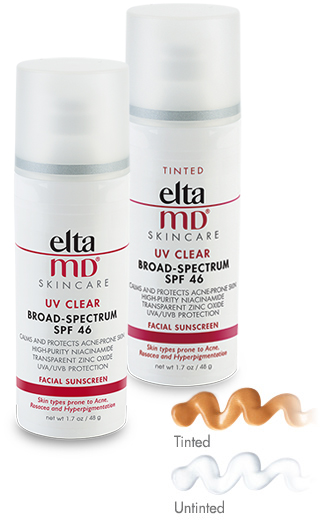Anti-aging
What Would You Like to Know About?
Overview
Skin experiences a myriad of changes with aging: wrinkles, discoloration, dryness, thinning, textural changes and more. A multitude of products are available over-the-counter which aim to improve these issues. Some of these products work well. Others market unrealistic expectations and yield minimal results. Selection of suitable anti-aging agents can be an overwhelming process.
Treatment
Many dermatologists embrace an anti-aging regimen with three main components: sun protection, a retinoid and moisturizer. With adherence to these tenants, a simple, effective and affordable anti-aging routine is possible.
SUNSCREEN Protection from the sun mitigates against brown spots, wrinkles, textural changes, and the appearance of thinning or bruised skin. UVA light, which contributes to photoaging, is present in sufficient quantities year-round to damage skin.
Thus, sunscreen is an integral part of any daily anti-aging routine. Sunscreen should be labeled broad spectrum and have an SPF of at least 15 for casual use, 30 or higher for outdoor recreational activity. Remember to reapply every two hours for best results. See also (link here) more detailed advice on sun protection.
RETINOIDS are tried & true topical agents recommended by many dermatologists to combat fine lines, wrinkles and help with pigment and textural irregularities. Some of these products also combat acne.
MOISTURIZERS are key. As skin ages, it becomes more dry. The result is an appearance of advanced age, decreased luster and more visible wrinkles. In addition to a daily sunscreen or moisturizer with SPF, apply a heavier non-comedogenic moisturizer at bedtime.
OTC Treatment Options
General Anti-aging
Sunscreen

Elta MD Clear (with or without tint)
- Elta MD Physical Broad-Spectrum SPF 41 (non-chemical)
- Aveeno Positively Radiant Daily Moisturizer Broad Spectrum SPF 30.
- Colorescience Sunforgettable® Total Protection™ Brush-On Shield SPF 50 (brush-on powder available in several tints, non-chemical).
- Alastin Hydratint Pro Mineral Broad Spectrum Sunscreen (non-chemical)
- More about sunscreens
Other Options
Oily Skin
- Cetaphil Derma Control Oil Control Foam Wash
- La Roche Posay Effaclar Purifying Foaming Gel Face Wash for Oily Skin
- CeraVe Foaming Facial Cleanser for Normal to Oily Skin--has ceramides (helps protect skin barrier) and niacinamide (an anti-inflammatory)
- Panoxyl Creamy Wash (benzoyl peroxide)
- Aveeno Clear Complexion Foaming Cleanser (salicylic acid)
- Neutrogena Oil-Free Pink Grapefruit Acne Facial Cleanser (salicylic acid)
Sensitive Skin
- Cetaphil Gentle Skin Cleanser
- Clean & Clear Essential Foaming Face Wash for Sensitive Skin
Retinoid

Differin Gel (0.1% adapalene)
- La Roche-Posay Effaclar Adapalene Gel
- ROC Retinol Correxion Night Cream
- Neutrogena Rapid Wrinkle Repair Regenerating Cream
- Lancome Visionnaire Skin Solutions Pure 0.2% Retinol Correcting Night Concentrate
Other Options
- Clean & Clear Persa-Gel 10 Maximum Strength Acne Treatment (10% Benzoyl Peroxide)
- The Ordinary 10% Azelaic Acid Suspension
Moisturizer

CeraVe Skin Renewing Night Cream
- CeraVe Moisturizing Cream
- Cetaphil Hydrating Night Cream
- Neutrogena Hydro Boost Hyaluronic Acid Hydrating Face Moisturizer
Other Options
- Cetaphil Oil Control Moisturizer SPF30
- CeraVe Ultra-Light Moisturizing Lotion SPF30 for normal to oily skin
- Neutrogena Oil Free Facial Moisturizer SPF 15
- Aveeno Positively Radiant Daily Moisturizer Sunscreen SPF 30
Regimen
AM & Daytime
PM & Bedtime
OTC Tips
Applying retinoids (adapalene, retinol) more than directed will not provide faster or better results, but may worsen skin irritation. Side effects of retinoids are generally mild but may include dryness, redness, burning, itching , scaling, and sun sensitivity. Frequency of application can be decreased to every other night and gradually increased if necessary.
There are many other anti-aging products with ingredients such as vitamin C, peptides, alpha and beta hydroxy acids and more. If unable to achieve a satisfactory anti-aging regimen with the above guidelines, consult a dermatologist for expert & customized advice.
*FDA approved for acne treatment.
Supplement
Coming soon

